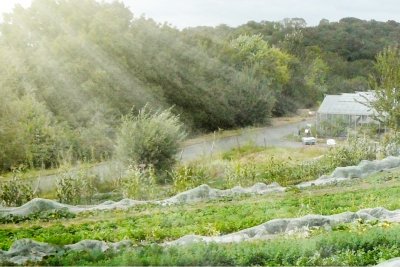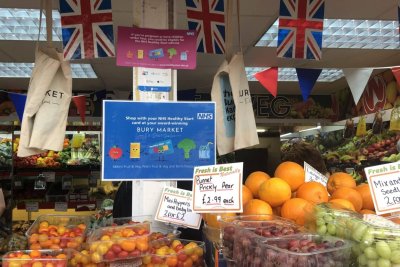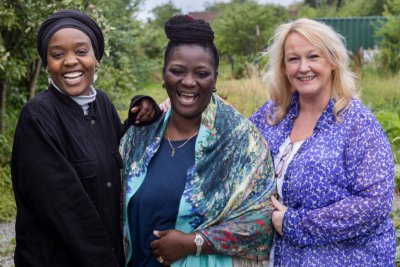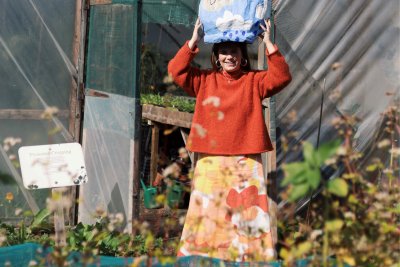How do we ensure everyone in food poverty has dignified access to support?
The Food Power Festival was a four-day online festival for food poverty alliances, food partnerships, local authorities and other allies working to tackle the root causes of food poverty. In this blog, Food Power’s Cecily Spelling, summarises lessons from day two which explored how to ensure people in food poverty have dignified access to support.
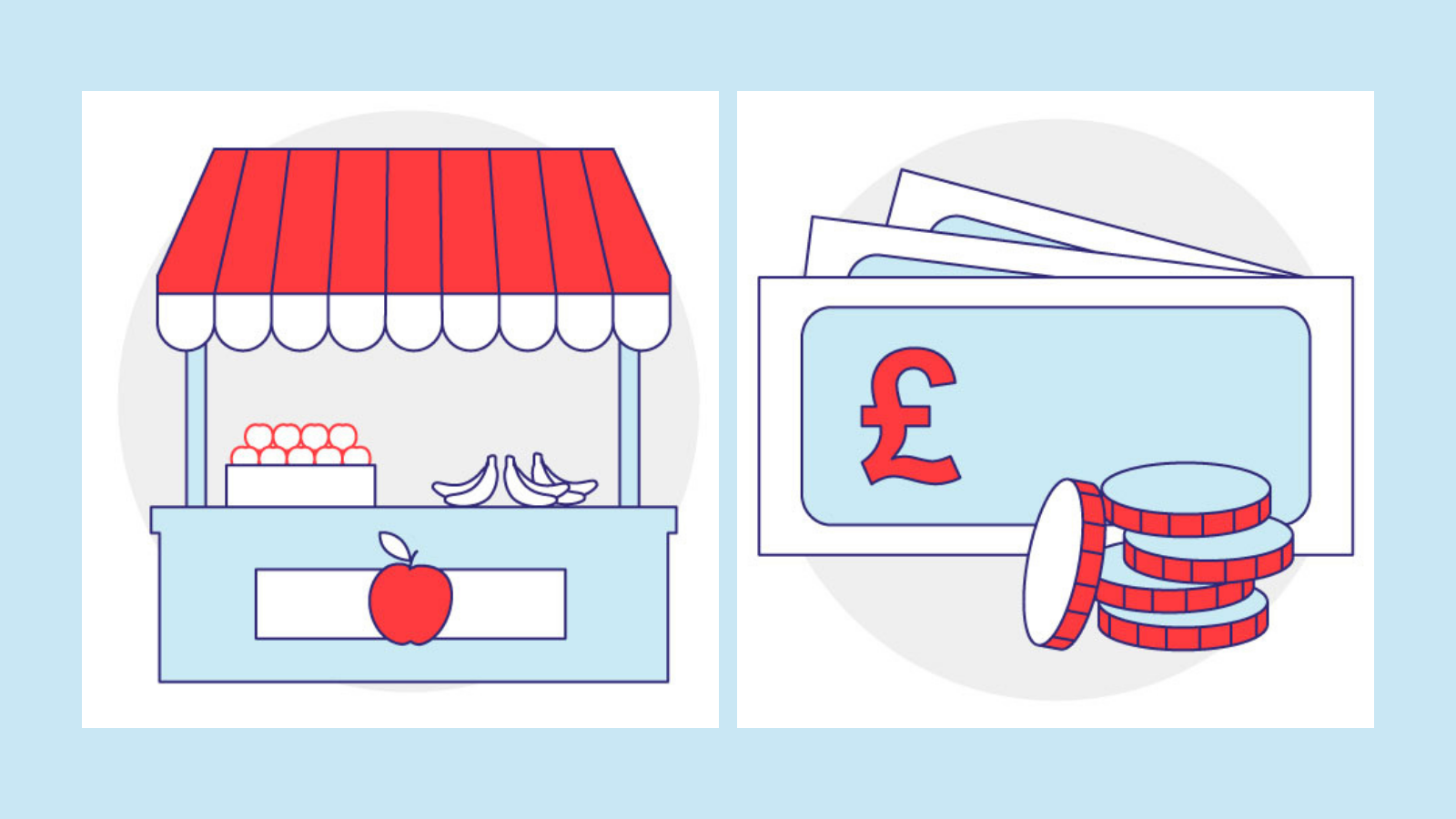
The goal of Food Power was to transform the way people experiencing food poverty access support so they can create long-term, sustainable lives that are free from hunger. But what does this look like in reality? On day two of the Festival we explored the tools, models and projects that are helping to move us beyond the food bank and ensure everyone is able to access dignified support. Here's what we learnt:
Making cash first the default option
Our first session of the day focused on making cash-first approaches the default option because no focus on dignified support would be complete without it:
- Sabine Goodwin from the Independent Food Aid Network kicked off the session with their aim of ensuring enough people 'have enough money in their pocket to allow them to shop'. They are advocating such an approach with Governments across the UK and working with local authorities and service providers to develop cash first referral leaflets which help people find advice and support. Contact IFAN if you’d like to develop a leaflet together.
- Fiona Steel from Good Food Oxford shared their report on expanding the Living Wage which resulted in Oxford City Council committing to reviewing and setting the Oxford Living Wage annually; becoming an accredited Living Wage employer; and offering cash grants for those in need during the pandemic to cover food and essentials.
- Norma Matheson from Moray Council introduced their Flexible Food Fund which paid two monthly cash payments directly into people’s bank accounts based on household size. The first payment was offered with no strings attached whilst the second required recipients to work with an adviser to look at their household costs and budget.
- Robbie Cowbury and Umair, an expert by experience, represented the Migrant Destitution Fund, Greater Manchester. Working together with 18 partner organisations and across 10 boroughs the fund has given grants to 300 people totalling £62,000. Umair shared how the no recourse to public funds condition had excluded him and his family from seeking support, but that the destitution fund had put cash in his pockets, giving him choice and security.
What now for meal deliveries and healthier ready meals?
Meal deliveries and ready meals offered a lifeline for many during the pandemic as restrictions limited access to shops and kept people shielding in their homes. Simon Shaw chaired this session on what projects have been delivered and what the future holds for such schemes:
- Jade Bashford from the Real Farming Trust talked about the Ready, Healthy, Eat programme, which brings together four local community food projects in the UK to trial different ways to improve ready-to-eat meals. As part of this, they are seeking input from customers to understand what works best for them. Sign up for their newsletter to hear more.
- Peter Clarke introduced the Dartmoor Community Kitchen that has delivered meals in care homes, as standalone delivery options and within a café. They ran a medical research project with Exeter University in which they found a significant number of their recipients were at risk of malnutrition but after just three weeks of the programme, a significant proportion of people were deemed no longer at risk. The benefits of this work go far beyond the beneficiaries, supporting local businesses, employment and creating community ownership.
- Livia La Camera from Greenwich Cooperative Development Agency introduced the Cook and Freeze project in Lewisham and Greenwich. Initially a volunteer led pop-up kitchen, it pivoted to a frozen meal model for people who were shielding or food insecure during the pandemic. They were able to base meals around what people wanted, provide culturally appropriate foods thanks to constant feedback from customers and overall they delivered 38,000 meals in just over a year.
Healthy Start/Best Start learning network
The Healthy Start (England, Wales and NI) and Best Start (Scotland) Schemes offer pregnant women and young children under four £4.25 per week to buy fresh fruit, vegetables, milk and more. This session highlighted the changes coming into place for Healthy Start specifically, the lessons learnt on the Best Start scheme and the projects that are helping increase uptake of both across the UK.
- Rebecca Tobi from the Food Foundation discussed the digitisation taking place this year where users will be able to use pre-paid cards instead of paper vouchers. The End Child Food Poverty website, spearheaded by Marcus Rashford, has been updated with information on the scheme including an eligibility calculator and a series of recipe cards.
- Nikki McKay from CFINE in Aberdeen shared that the Best Start scheme also uses a pre-paid card and that thanks to promotion on TV and social media by Social Security Scotland, uptake is increasing.
- There are a number of projects helping to raise awareness of the scheme around the UK through Food Power support. The Smile Pantry, based in Aberdeen, is a pantry that accepts Best Start cards. It also uses other activities and members of the community centre to raise awareness about the scheme so more people can benefit. The Cambridge Healthy Start Veg Box Scheme, established by Cambridge Food Hub and Cambridge Sustainable Food, provides subsidised veg boxes where Healthy Start vouchers and a small monetary contribution can be used to purchase a weekly fruit and veg box.
Bridging the gap through alternative retail
Alternative retail models have the potential to bridge the gap between food banks and food security by offering payment opportunities, greater choice and community ownership. This session highlighted the following models being tried and tested around the UK:
- Food pantries in Tower Hamlets. The first was established in March 2020. There are now five across the borough all offering nutritious food and access to other support and advice for £3.50 a week or £10 a month. They’ve recently started stocking grains, pulses, spices and organic food, offering a more culturally appropriate selection.
- Cooperative Towns in Islington. Seven pilots are now being delivered across Islington to provide food to families at a more affordable price; introduce people to the concept of food coops; and to roll cooperatives out further so resident-led buying groups become the norm. They use a tiered pricing system and will share their key learning and insights when available.
- Brighton and Hove’s affordable food projects. There are 7 pilots across the city offering different schemes in each neighbourhood. The BrightStore scheme specifically offers an open access scheme for anyone to join with membership fees of £4, or £6 for the ‘extra bright’ option where some members pay a little more to enable free membership for others.
- Your Local Pantry. A network of over 50 volunteer-run affordable pantry stores across the UK. These offer memberships schemes that are open to all and require a small weekly fee to purchase fresh and chilled produce.
- There were a number of shared lessons, including that alternative models can offer more dignity and choice than food banks; enable customers to save money in the long run; build community ownership; and create better connections with the food system by sourcing local produce.
- Shared challenges were also identified including difficulty competing with supermarket prices without the use of redistributed surplus food; and a tension between ethical and affordable produce. Many are also not financially sustainable without the use of volunteers to lead them.
So, how do we ensure everyone at risk of food insecurity has dignified access to food?
- Use a cash-first approach wherever possible and involve experts by experience in the design of such schemes. See more examples of how to maximise family income.
- Explore ways to develop sustainable meal deliveries schemes that can reduce isolation and malnutrition in local communities, in partnership with local authorities and the community themselves. Join the meals on wheels e-forum.
- Advertise and promote the Healthy Start and Best Start schemes so as many families can benefit as possible. Read our guide on how to make the most of the scheme.
- Explore alternative retail models because they can provide a gateway to independence and community connection. Read this guide offering advice on setting up projects.
We’ll be sharing more learning form the Festival across the month of June and you can catch up on session recordings in full on the Food Power website.
Published Thursday 24 June 2021
Food Power: Food Power is an exciting new programme working with local communities across the UK to strengthen their ability to reduce food poverty.
